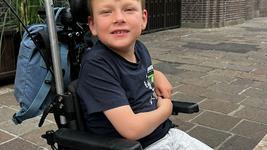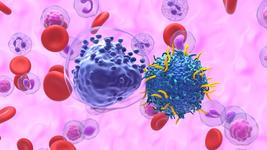CMN Weekly (25 April 2025) - Your Weekly CRISPR Medicine News
By: Karen O'Hanlon Cohrt - Apr. 25, 2025
CMN Intelligence - The World’s Most Comprehensive Intelligence Platform for CRISPR-Genomic Medicine and Gene-Editing Clinical Development
Providing market intelligence, data infrastructure, analytics, and reporting services for the global gene-editing sector. Read more...
Top picks
- Researchers at Massachusetts General Hospital and Harvard Medical School have developed an algorithm to create custom CRISPR-Cas9 PAM variants via scalable engineering and machine learning. The study, led by Ben Kleinstiver and reported earlier this week in Nature, addresses major limitations of traditional CRISPR-Cas9 enzymes by predicting gene-editing efficacies and target specificities of approximately 64 million genome-editing nucleases. The PAMmla model was trained using biochemical data from about 1,000 newly-engineered Cas9 enzymes with altered PAM preferences. The team demonstrated PAMmla-predicted enzymes effectively edit disease-causing sequences in primary human cells and mice. The researchers have made a web tool to allow others to use the PAMmla model.
- In an article published today in Science, researchers at University of Washington and Southern University of Science and Technology China describe rAcrVIA1, a plasmid-encoded small RNA that inhibits the RNA-targeting CRISPR-Cas13 system in its natural host, Listeria seeligeri. Using cryo-electron microscopy, the team solved the structure of the Cas13-rAcr complex, revealing that rAcrVIA1 adopts a fold nearly identical to CRISPR RNAs despite sharing negligible sequence similarity. While most anti-CRISPR factors are proteins, these RNA anti-CRISPRs displace CRISPR RNAs from cognate Cas nucleases. This discovery expands the diversity of rAcrs and demonstrates immune antagonism through RNA structural mimicry.
Research
- Researchers in China report that orally-administered CRISPR-Cas9-loaded nanoparticles, designed to target the mitochondrial chaperone TRAP1, overcome chemoresistance and enhance immune responses across multiple colorectal cancer disease models. The findings may offer new hope for treating advanced disease. The findings were published in Nature Nanotechnology and you can read a brief summary by CMN here.
- A new CRISPR-based method has been developed to functionally validate hits from pooled knockout screens by measuring shifts in indel profiles that reflect gene effects on cellular fitness. Known as CelFi, this assay monitors edited allele frequencies over time to confirm gene dependencies or vulnerabilities in a range of cell contexts. Details of the study, carried out by researchers St. Jude Children's Research Hospital, Memphis, were recently published in Scientific Reports. You can find CMN's summary of the findings here.
- In an article published yesterday in Journal of Nanotechnology, researchers in China describe a new approach to restore expression of the tumour suppressor STK11 in non-small cell lung cancer (NSCLC) using a bionic gene delivery system called STK11@PPCM. This tumour cell membrane-coated delivery system effectively restored STK11 protein expression in STK11-mutated cancer cells, reactivating autophagy and immunogenic cell death pathways. The researchers demonstrated that this restoration reversed the immunosuppressive tumour microenvironment and enhanced the response to anti-PD-1 immunotherapy by increasing PD-L1 expression, as confirmed in CRISPR-Cas9-generated mouse models. This work represents the first demonstration that functional STK11 restoration can reverse immunosuppression and boost immunotherapy efficacy in NSCLC, offering a potential new therapeutic strategy for STK11-mutated lung adenocarcinoma patients.
- Researchers at various institutes in the US, led by Jennifer Doudna, conducted biochemical, biophysical, and cell-based assays on Streptococcus pyogenes Cas9 variants with different PAM-binding specificities to investigate determinants of efficient genome editing. Their findings reveal a fundamental trade-off: reduced PAM specificity results in persistent non-selective DNA binding and recurring failures to establish stable guide RNA hybridisation, ultimately decreasing genome-editing efficiency in cells. The researchers propose that effective RNA-guided genome editing depends on an optimised two-step target capture process where selective but low-affinity PAM binding precedes rapid DNA unwinding. This model establishes a foundation for engineering more effective CRISPR-Cas and related RNA-guided genome editors. The findings were published earlier this week in Molecular Cell.
- Scientists based at University of Valencia and INCLIVA Biomedical Research Institute, also in Valencia (Spain) have developed a nucleic acid detection platform for virus detection that combines CRISPR-Cas9 with lateral flow technology. Their method achieves sensitive detection (1-10 copies/μL) within one hour at low temperatures and was validated with clinical SARS-CoV-2 samples. The system demonstrates multiplexed detection capability, successfully identifying both SARS-CoV-2 and Influenza A in spiked samples. The platform offers significant potential for point-of-care testing to improve patient outcomes and pandemic readiness. The findings were published yesterday in ACS Applied Bio Materials.
Industry
- Scribe Therapeutics announced this week that the company will give a late-breaking oral presentation at the 93rd European Atherosclerosis Society Congress taking in May at the Scottish Event Campus in Glasgow, United Kingdom. According to the press release, Aarif Khakoo, M.D., M.B.A., Chief Scientific Officer and Head of Research and Development at Scribe, will present the latest data on the application of its CRISPR-based epigenetic silencer at therapeutically-relevant doses for potent, durable, and safe reduction of low-density lipoprotein cholesterol (LDL-C) in non-human primates.
- Cellares, an Integrated Development and Manufacturing Organization (IDMO), announced earlier this month that it has entered a strategic collaboration with the University of Wisconsin School of Medicine and Public Health to automate the manufacturing of a CRISPR-edited GD2 CAR-T investigational therapy. Cellares' Cell Shuttle™ will accelerate the development of the university's CRISPR-edited GD2 CAR-T therapy by automating manufacturing processes, enabling clinical-scale production earlier, and removing technical barriers that typically slow down the translation of promising solid tumour treatments from laboratory to clinical trials. See the press release for further details.
- Fate Therapeutics recently announced that the FDA has granted Regenerative Medicine Advanced Therapy (RMAT) designation to FT819, an investigational, off-the-shelf, iPSC-derived CAR T-cell therapy candidate. FT819 is currently being evaluated in a Phase 1 trial for the treatment of active moderate to severe systemic lupus erythematosus (SLE), including lupus nephritis (LN), and the RMAT review by the FDA included initial clinical safety and activity data from SLE patients in that trial. According to the press release, the company expects to present additional Phase 1 clinical data of FT819 to be presented at medical conferences in 2025.
- Precision Biosciences announced recently that the FDA has granted Fast Track designation for PBGENE-HBV, which is Precision's lead in vivo gene-editing programme designed to cure chronic hepatitis B. The company is evaluating PBGENE-HBV in the ongoing global Phase 1 ELIMINATE-B trial, with clinical sites in the United States, Moldova, Hong Kong, New Zealand, and the United Kingdom. According to a press release, Precision expects to share updates on the full low-dose cohort, including multiple dose administrations, and data from higher dose levels throughout 2025. You can read more about PBGENE-HBV in a recent clinical trial update here.
- Caribou Biosciences announced in a press release published yesterday a strategic pipeline prioritisation with workforce and cost reduction initiatives aimed to focus resources on its lead oncology clinical programmes CB-010 and CB-011, with clinical data disclosures now planned for H2 2025. Specifically, the company is discontinuing the ongoing GALLOP trial (evaluating CB-010 for lupus), the AMpLify trial (evaluating CB-012 for acute myeloid leukaemia), and pre-clinical research. Caribou is also reducing its workforce by 32%, with related costs estimated at $2.5-3.5 million. These strategic changes are expected to extend Caribou's cash runway by one year, funding operations into H2 2027 instead of H2 2026.
- Earlier this month, Verve Therapeutics announced that the FDA has granted Fast Track designation for VERVE-102 for the treatment of patients with hyperlipidaemia and high lifetime cardiovascular risk to reduce LDL-C. VERVE-102 is Verve's novel, in vivo, investigational base-editing therapeutic candidate designed to be a one-time treatment that permanently silences the PCSK9 gene in the liver and durably reduces disease-driving LDL-C. VERVE-102 is being evaluated for safety and tolerability in the Phase 1b Heart-2 clinical trial in adult patients with heterozygous familial hypercholesterolemia and/or premature coronary artery disease who require additional lowering of LDL-C. See the press release for further details. Shortly after this announcement, Verve released clinical data showing that a single VERVE-102 infusion achieved a mean 53% LDL-C reduction in the 0.6 mg/kg cohort in the Heart-2 trial. Safety-wise, VERVE-102 was well-tolerated with no serious adverse events across 14 participants. See that press release here.
- YolTech Therapeutics announced earlier this month that the FDA has granted Orphan Drug Designation to YOLT-202, an investigational in vivo base-editing therapy for the treatment of alpha-1 antitrypsin deficiency (AATD). YOLT-202 is based on YolBE, YolTech’s proprietary adenine base editor that has been optimised to enable potent and precise correction of the SERPINA1 PiZ mutation, the most common and severe disease-causing variant in AATD. YolBE achieves on-target editing at this locus with minimal bystander activity, offering a potential one-time treatment therapy with durable therapeutic benefits. See the press release for further details.
- Earlier this month, nSAGE, Caszyme, and Vilnius University announced a consortium to develop UNCOVER, a universal CRISPR-based diagnostic platform for rapid detection of infectious diseases. UNCOVER will be versatile, user-friendly, and applicable to both human and animal health. Using advanced bioinformatics and protein engineering, the team will optimise Cas proteins for improved sensitivity and specificity. Following validation with patient samples, UNCOVER aims to address crucial gaps in Point-of-Care diagnostics, enhancing disease detection capabilities globally. See the press release for further details.
- HuidaGene Therapeutics will participate in the 28th Annual Meeting of the American Society of Gene & Cell Therapy (ASGCT), to be held in New Orleans in May. According to the press release, HuidaGene will present 13 abstracts, including one Presidential Symposium oral presentation, four additional oral presentations, and eight poster presentations, highlighting its progress in developing CRISPR genome-editing technologies to address severe neurological, neuromuscular, and retinal diseases.
- Iovance Biotherapeutics will participate in two upcoming scientific meetings with presentations on its tumour-infiltrating lymphocyte (TIL) cell therapy pipeline. At the 2025 AACR Annual Meeting (April 25-30, Chicago), the company will present pre-clinical data on IOV-5001, its genetically-engineered IL-12 TIL therapeutic candidate for solid tumours. At the 2025 ASCO Annual Meeting (May 30-June 3, Chicago), Iovance will present five-year outcomes data from the C-144-01 study of lifileucel in advanced melanoma and a poster on study design for lifileucel in frontline advanced non-small cell lung cancer. The company will also host a panel discussion with melanoma experts on May 31. See the press release for further details.
- Earlier this month, Allogene Therapeutics announced that ALLO-329, an investigational dual-targeted CD19/CD70 allogeneic CAR T, has received three Fast Track Designations from the FDA for the treatment of adult patients with: active refractory moderate-to-severe systemic lupus erythematous; active severe/refractory idiopathic inflammatory myopathy, specifically dermatomyositis, immune mediated necrotising myopathy and anti-synthetase syndrome; and active refractory diffuse systemic sclerosis. ALLO-329 is an investigational, allogeneic CRISPR-edited CD19/CD70 dual CAR T-cell therapy candidate, and the first CAR T-cell therapy designed to target both CD19+ B cells and CD70+ activated T cells. Read more about ALLO-329 in a previous clinical trial update here.
- Synthego and Vita Therapeutics announced earlier this month that they have entered a licensing agreement to integrate Synthego’s high-fidelity hfCas12Max CRISPR system into Vita's cell therapeutic programmes. This non-exclusive sublicense grants Vita Therapeutics access to the engineered hfCas12Max nuclease and optimised hfCas12Max guide RNAs for use in pre-clinical and clinical applications, including in potential commercialised therapeutics. See the press release for further details.
Clinical
- Epicrispr Biotechnologies announced in a press release published this week that it will partner with Springbok Analytics to incorporate advanced, AI-driven muscle MRI imaging and analysis into its first-in-human clinical trial of EPI-321, a potential first-in-class treatment for facioscapulohumeral muscular dystrophy (FSHD). The company recently obtained FDA clearance to begin clinical trials of EPI-321. Delivered via AAV, EPI-321 silences aberrant gene expression and has shown strong pre-clinical efficacy. A global Phase 1/2 trial will launch in 2025, following earlier clinical trial approval in New Zealand.
- Allogene Therapeutics announced this week that it will present updated data from the completed Phase 1 TRAVERSE trial of ALLO-316 in an oral presentation at the 2025 American Society of Clinical Oncology Annual Meeting, taking place May 29-June 2 in Chicago, Illinois. The trial evaluated ALLO-316 in patients with advanced or metastatic renal cell carcinoma who had progressed following immune checkpoint inhibitor and VEGF-targeted therapies. The company will also present a trial-in-progress poster to highlight the ongoing pivotal Phase 2 ALPHA3 trial, which is evaluating cema-cel as part of first-line treatment for patients with large B-cell lymphoma. See the press release for further details.
- At the 2025 Alpha-1 Foundation 7th Global Research Conference and 10th Patient Congress held earlier this month in Portugal, Beam Therapeutics presented additional data from the Phase 1/2 clinical trial of BEAM-302 in patients with alpha-1 antitrypsin deficiency. The latest data shows that that the 60 mg cohort (consisting of 3 patients) reached a mean of 91% corrected AAT in circulation at Day 28. A 79% mean reduction in mutant Z-AAT was observed at Day 28 in this cohort. See the press release for further details.
- KSQ Therapeutics announced in a press release published earlier this month that the first patient has been dosed in the Phase 1/2 clinical study of KSQ-004EX, a novel CRISPR-engineered tumour infiltrating lymphocyte (eTIL®) therapy. KSQ-004EX consists of eTIL in which the SOCS1 and Regnase-1 genes are inactivated by CRISPR/Cas9 gene editing, giving it the potential to be a best-in-class treatment for several solid cancers.
Reviews
- Precision Reimagined: CRISPR and Multiomics Transform Systemic Lupus Erythematosus Diagnosis and Therapy. This review aims to explore the potential of CRISPR and multiomics technologies to revolutionise the diagnosis and treatment of systemic lupus erythematosus (SLE), emphasising their integration with AI to advance personalised care. By addressing existing barriers, the authors envision a future where precision medicine transforms SLE management, paving the way for individualised, patient-centred autoimmune therapy.
- Efficacy of CRISPR-Cas9 gene editing for targeting KRAS mutations in pancreatic cancer: a systematic review. This review examines the application of CRISPR/Cas9 gene editing technology to target KRAS mutations in pancreatic cancer. KRAS mutations occur in approximately 85% of pancreatic cancers and significantly contribute to tumour growth and progression. Studies show that CRISPR-based targeting of mutant KRAS effectively reduces cancer cell growth in vitro and inhibits tumours in animal models. Despite promising results, challenges with delivery methods, off-target effects, and safety concerns must be addressed before clinical use.
- Retina-directed gene therapy: Achievements and remaining challenges. This review outlines the current state of retinal gene therapy, including ongoing challenges and future directions. The authors discuss the milestone approval of gene therapy Luxturna for RPE65-associated retinopathy, while exploring why no other AAV-based retinal gene therapies have been approved since. Emerging approaches to overcome current limitations are discussed, including AAV capsid engineering, dual-vector systems, and CRISPR/Cas genome editing. Finally, the authors look at how gene therapy research is expanding beyond inherited conditions to address complex acquired diseases such as age-related macular degeneration and diabetic retinopathy.
News from CRISPR Medicine News
- On Tuesday, we published an article to highlight the work presented in the winning posters at CRISPRMED25. Read that here.
To get more CRISPR Medicine News delivered to your inbox, sign up to the free weekly CMN Newsletter here.
Tags
ArticleMissing linksNewsCMN WeeklyAllogene Therapeutics, Inc.Beam Therapeutics Inc.Caribou Biosciences, Inc.CaszymeEpicrispr BiotechnologiesFate Therapeutics, Inc.HuidaGene TherapeuticsIovance BiotherapeuticsKSQ TherapeuticsPrecision BioSciences, Inc.Scribe TherapeuticsSynthegoVerve Therapeutics, Inc.YolTech Therapeutics
CLINICAL TRIALS
IND Enabling
Phase I
Phase II
Phase III
Gastric Cancer and Colorectal Cancer, CRC, (NCT07166263)
Sponsors:
Base Therapeutics (Shanghai) Co., Ltd.
Sponsors:
Base Therapeutics (Shanghai) Co., Ltd.
IND Enabling
Phase I
Phase II
Phase III
Relapsed or Refractory Acute Myeloid Leukemia, AML, (NCT06541444)
Sponsors:
Base Therapeutics (Shanghai) Co., Ltd.
Sponsors:
Base Therapeutics (Shanghai) Co., Ltd.
IND Enabling
Phase I
Phase II
Phase III







